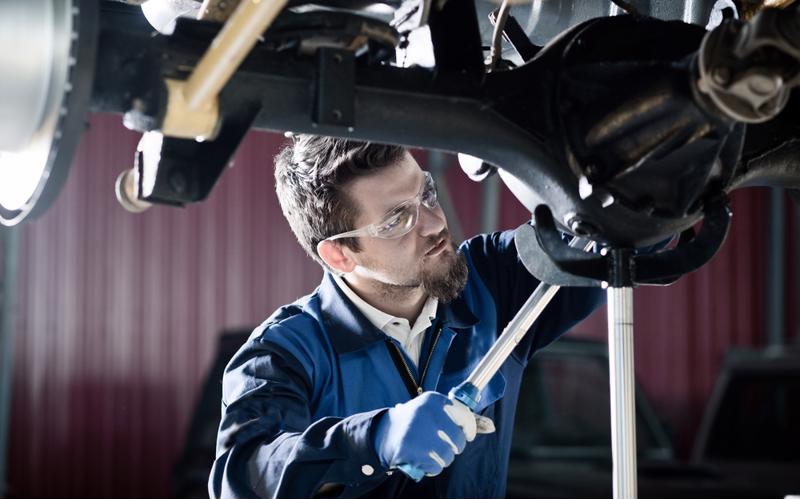

After the season of road trips and backpacking, it's time to give your vehicle, and especially your brakes, a tune up before heading into winter. Your vehicle should be prepared with new oil, rotated tires, wiper fluid and, most importantly, tuned-up brakes. A prepared car can help you feel safer on the road and drive with better confidence. Just like riding a bike, it's hard to feel comfortable getting going until you know how to stop.
All vehicles need a way to decelerate safely no matter what speed they are driving. Most street vehicles can withstand repeated braking at speeds up to 60 mph. But the harder you brake, the faster the brake pads and braking fluids will wear down. If you drive a sports car, you may have even noticed red hot brakes from time to time at high speeds. While red hot brakes are fine, it's time to look closer if your notice any signs of brake damage.
A driver is only as powerful as their brakes.

Protecting yourself and others from an accident begins with you. While your check engine light may not go on, there are signs that your vehicle needs a tune-up:
Your car pulls to one side
Not only is this an annoying thing to constantly adjust for on the road but it can be a sign of some serious issues in your car. Involuntary shifts to one side could indicate:
The brakes are grinding
Grinding brakes sound like a gritty, metal-on-metal screeching sound from your car. This sound indicates that your brake pads have been ground to the point of being completely worn out, exposing their metal backing plates. The plates are now rubbing against the metal of your brake rotors, which is extremely dangerous and should be addressed immediately.
Experiencing longer stop times
When your brake pads are brand new, they will create pressure on the rotors, which is called brake fade. When brake fade happens, the brakes have likely been held against the rotors for long periods without stopping, like when rolling down a hill. As the pads grind down, they lose their ability to generate friction against the rotor, extending the time it takes to come to a complete stop.
The brake pedal vibrates when pressed
When the resin holding your brake pads together gets hot, it will sometimes smear across the rotor. Typically this spread is done evenly across the rotor but if the pads get overheated, the resin may not be distributed uniformly, which will eventually cause vibrations.
Car manufacturers have fit your car with the brakes you need to maintain a safe drive at an affordable cost. They have fit your vehicle with a balanced system designed for its intended use, whether it be racing, commuting or otherwise.
But, if you want to change your brakes on your own, an improvement to your car's standard, factory-installed brakes is certainly possible.
Brake fluid
For an average street vehicle, be sure to change the braking fluid on your car every three years (and more often if you use your car for racing, off-roading, or high-performance activity). For more intensive driving, you should replace your brake lines with intended for more high-performance use, such as braided metal. A specialized mechanic will need to be the one to install such a system.
Brake discs
To help your brakes cool faster, opt for vented or cross-drilled brake discs. The more ventilation they get, the longer they will last on the road.
Brake pads and rotors
Next, change your brake pads and rotors. If your rear axle still has drum brakes, switch them out for disc brakes to see better braking performance. Because this is one of the more important parts of your braking power, you should ask for a technician's help. The trick here is that cheaper is not always better – opt for a system that can accommodate the way you drive and the terrain you typically cross.
Get as much expert advice from a braking specialist as you can before getting started. The goal, after all, is to create a system you can trust to drive safely and as needed.
Greening Testing Laboratories is a fully certified brake testing lab that provides a variety of brake testing services worldwide. Contact Greening for a complimentary consultation.